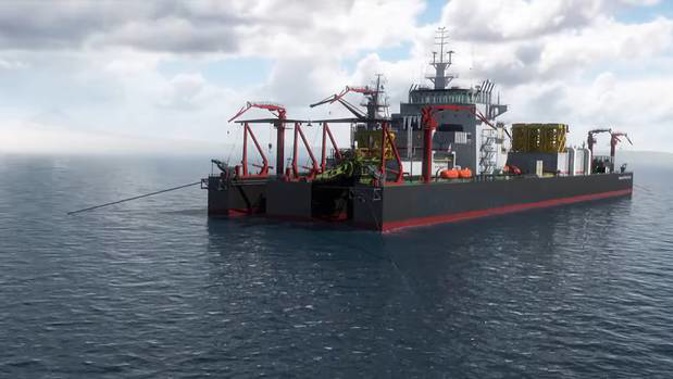
Seabed mining was the subject of four full-on days of debate in the Wellington High Court last week, Ngāti Ruanui chief executive Debbie Ngarewa-Packer says.
Her South Taranaki iwi was one of seven parties appealing the Environmental Protection Authority's decision to allow iron-sand mining offshore from Patea.
Mining company Trans-Tasman Resources (TTR) wants to suck up 50 million tonnes of sand a year from the seabed, and export 10 percent to Asia.
It got consent in August last year. The consent relied on a deciding vote by the chairman of a four-member decision-making committee.
The parties' appeal was heard by Justice Peter Churchman and ended on April 19. He said the matter was complex and unique, and he expected to make a decision within three to six months.
Whichever way the decision goes, Ngarewa-Packer said, it is likely to be appealed.
TTR has spent more than $65 million to get to this stage. And Ngāti Ruanui has said it will appeal any decision to allow the mining.
The case created a lot of interest. On April 16, the first day, there was a kerfuffle because the courtroom wasn't big enough for all the people who wanted to be there. Throughout the appeal, some had to sit outside and listen to audio.
TTR lawyer Justin Smith told Justice Churchman the appellants had exaggerated the environmental effects of the mining. The removal of sand would change the seabed rapidly, but it would repair rapidly as well, he said.
The sediment plume from mining would be no greater than the sediment suspended in seawater after heavy rain, he said. And the closest marine mammal sighting to the mining area was 14km away.
One of the matters in question was whether the Environmental Protection Authority (EPA) "entered into the fray". Justice Churchman allowed its lawyer to speak briefly on the final day.
The appellants worked well together, Ngarewa-Packer said. Their lawyers said mining would harm the fishing industry.
They argued that adaptive management - starting the mining and then reacting to previously unknown effects - was not permissible. They questioned whether Treaty of Waitangi principles had been applied and whether there was enough information about the existing environment in the South Taranaki Bight.
One lawyer said the EPA committee should not have been able to use a casting vote.
Another told the court it was so rare for the fishing industry and Greenpeace to be on the same side that the court case must be important.
Take your Radio, Podcasts and Music with you









